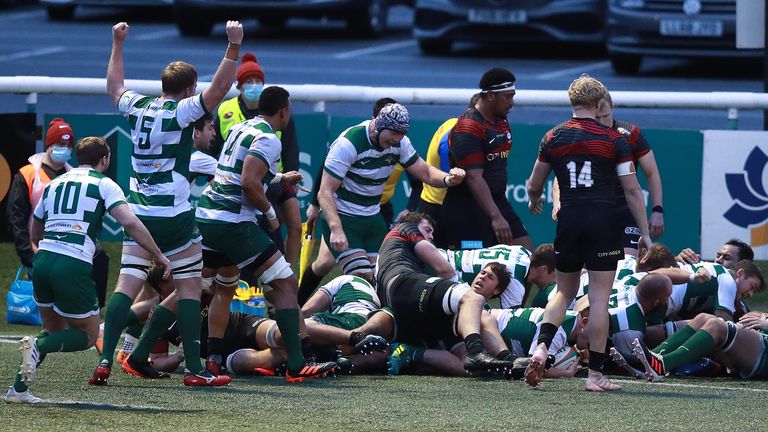The launch of the rebranded “Champ” league in English rugby was supposed to mark the beginning of a bold new era. With Worcester Warriors back in action, a fresh streaming partner, and some talented players ready to showcase their skills, hopes were high. The promise? The champions of the new league would finally earn promotion to the Premiership. But, as has often been the case with the second-tier competition, uncertainty over promotion and relegation continues to overshadow these plans.
At the heart of the confusion is the ongoing debate about whether promotion from the Champ will remain achievable, and if relegation from the Premiership will continue. The RFU Council recently convened to discuss the future of these rules, with no firm decision expected until months later. The Champ’s leadership, led by Simon Gillham, argues for a system where sporting success is properly rewarded and failure is sanctioned, ensuring a fair competitive structure. Yet, the fear that the goalposts may be shifted mid-season looms large, with some concerned that clubs in the Premiership could continue to manipulate rules in their favor.
While some see the potential for expansion—especially with the return of Worcester, whose loyal fanbase and stadium could be valuable additions to the Prem—there’s a growing sense that certain clubs may be left behind. Several Champ sides will need to invest heavily in facilities to keep pace with the evolving competition, or face the risk of being replaced by more ambitious teams.
For many in the second tier, including long-serving coaches like Mike Rayer at Bedford, this uncertainty is nothing new. They’ve watched, year after year, as the league has struggled with shifting rules, leaving players, coaches, and supporters constantly on edge. The possibility of American backers withdrawing their support due to unclear promotion paths only adds to the frustration.
Former England centre Simon Halliday voices his anger at what he sees as favoritism towards certain clubs with commercial backing. The specter of Premiership clubs choosing which teams to promote undermines the integrity of the competition, leading to fears that smaller clubs will remain stuck in the Champ, unable to break into the top tier despite solid performances.
In contrast, Nick Easter, now a director of rugby, staunchly defends the tradition of promotion and relegation, citing examples like Harlequins and Northampton, who found success after being relegated. He argues that relegation keeps the league competitive and exciting, which drives fan engagement. Without this jeopardy, the league risks becoming a less thrilling spectacle.
Despite these debates, some believe the future of English rugby may lie in a closed, franchise-based model. However, this shift could stifle the ambitions of young, emerging players and reduce the overall competitiveness of the sport.
As it stands, the future of the Champ remains uncertain, but one thing is clear: for English rugby to thrive, the league must find a balance that rewards talent, ensures fairness, and keeps the excitement of promotion and relegation alive.

